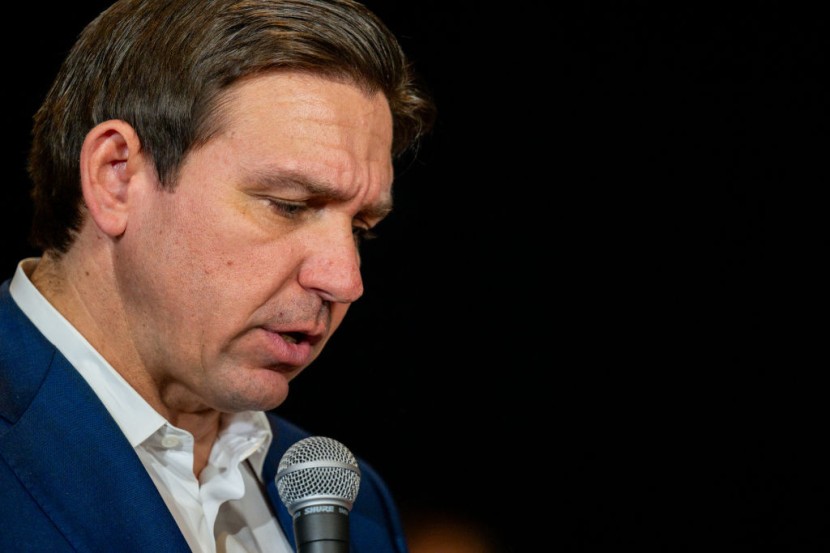Florida Governor Ron DeSantis has decided to suspend his Republican US presidential campaign right before the New Hampshire primary. He has chosen to endorse Donald Trump, bringing an end to his White House bid.
Unfortunately, his campaign did not live up to the expectations of him becoming a strong contender against the former president.

"It's clear to me that a majority of Republican primary voters want to give Donald Trump another chance," he said in a video posted on X on Sunday.
The New Hampshire primary, which is the first in the United States, is scheduled for Tuesday. DeSantis criticized former UN Ambassador Nikki Haley, who has been his main competitor for second place in the primary race. He believes that Republicans should not revert to the previous generation of Republican leaders, which he sees Haley as representing, according to USA Today.
DeSantis joined the 2024 presidential race with significant advantages in his bid to challenge Trump, and early primary polls indicated that he was in a favorable position to accomplish his goal.
He and his supporters accumulated a substantial political fortune, surpassing $100 million. He proudly showcased a notable legislative track record, particularly on topics that resonate with conservative values, such as abortion and the inclusion of race and gender issues in school curricula.
However, these benefits were short-lived in the world of presidential politics in 2024. Throughout the primary, DeSantis faced numerous challenges, including technical glitches during a high-profile announcement and frequent changes to his staff and campaign strategy.
These obstacles made it difficult for him to establish a strong foundation. He suffered a significant defeat in the Iowa caucuses, falling short of his goal to secure a victory, as Trump emerged as the clear winner with a 30 percentage point lead.
And now, DeSantis's political future is uncertain as he has decided to suspend his presidential campaign after participating in only one voting contest. The 45-year-old is serving his final term as Florida's governor.DeSantis was widely anticipated to pose a significant challenge to Trump.
Recognizing the potential risk, Trump aggressively targeted the Florida governor in the months leading up to DeSantis's announcement of his candidacy in May. He continued to criticize him on the campaign trail, through social media, and with paid advertising in the subsequent months.
However, it appears that DeSantis may have contributed to many of his own problems. In a surprising move, DeSantis broke with tradition and officially launched his presidential campaign on X. The announcement came during a conversation on a popular social media platform with CEO Elon Musk, further fueling speculation about his political ambitions.
The website experienced multiple failures throughout the conversation, greatly hindering the ability to hear his initial remarks as a presidential candidate. In the following weeks and months, DeSantis faced challenges in establishing a personal connection with voters.
DeSantis' Campaign Struggles
During his campaign's first visit to the state, he frustrated certain New Hampshire Republican officials by choosing not to engage with voters and answer their questions, going against the customary practice in New Hampshire. Furthermore, there were instances where the candidate had awkward encounters with voters in different states, which were captured on camera.
Additional financial difficulties arose during the summer. By the end of July, DeSantis had made the decision to reduce his campaign payroll by approximately one-third, resulting in the layoff of nearly 40 employees. The cuts were implemented soon after it was revealed in public filings that he was depleting his campaign funds at an unsustainable pace.
Many individuals seeking an alternative to Trump supported Haley, a former diplomat and South Carolina governor who garnered favor among Republican donors, independent voters, and those who oppose Trump.
DeSantis and Haley engaged in frequent confrontations during debates and in advertising, often directing their attacks at each other with more intensity than towards Trump.
Amid growing internal financial concerns, DeSantis took a proactive approach by enlisting the help of an allied super PAC to handle essential campaign tasks, including organizing campaign events, advertising, and conducting an extensive door-knocking operation.
According to federal law, campaigns are prohibited from directly coordinating with super PACs. In December, a non-partisan government watchdog group filed a complaint with the Federal Election Commission, citing reports from The Associated Press and other sources.
The complaint alleged that there was an excessive level of coordination and communication between DeSantis's campaign and the Never Back Down super PAC, potentially crossing a legal boundary. DeSantis vehemently denied any wrongdoing and dismissed the complaint as "a complete farce."
However, the continuous flow of unfavorable events prior to the primary contests eroded the trust of DeSantis's donor network and potential supporters at the ballot box, which was expected to be a significant advantage. As his polling numbers remained stagnant, DeSantis and his allies shifted their strategy, directing the majority of their resources towards Iowa's opening caucuses.
Following his withdrawal from the 2024 presidential race, DeSantis is now shifting his focus back to the remaining period of his second and final term as the governor of Florida, set to conclude in January 2027, Reuters reported.
Related Article: Haley Aims to Win Over NH's Independents to Win GOP Primary








